WAC web info portal set out to find out where in Abkhazia today one can learn the native language, what are the features of each of the methods, and whether it is necessary to act “on all fronts”.
Said Bargandzhia
Modern Abkhaz society is sounding the alarm, saying: “We are losing our native language.” After all, there are fewer and fewer people who have known Abkhaz since childhood or who have specially studied it. The problem is really acute, but with the right approach, it can be solved, experts respond to this. And they recall frequent examples of how people, completely unaware of the language, having attached desire and work, began to speak it. So, if the Abkhaz language can be successfully learned, then where and how can it be done today? How can each contribute to preserving the language in his place, in his family? We will try to answer these questions.
Individual approach
Personal tutoring is one of the most popular ways to learn a language. It has a lot of advantages. The teacher and the student can choose a convenient time for lessons, and most importantly - one can develop an individual approach to classes. Most often, the teacher takes the finished - the most effective, from his point of view - teaching methodology, or forms his system based on several methods. On average, the cost of one individual lesson with a teacher today is 300–500 rubles per hour. Most often, the duration of the lesson goes beyond one hour.
Tutors of Abkhaz language can be found in every city of Abkhazia. For example, the journalist and philologist Nonna Thuazba from Sukhum has been teaching Abkhaz language for 12 years. Over the years she has had to work with more than a hundred people. Her pupils were both adults and children, mostly repatriates from Turkey, Jordan and Syria. Of course, she also taught the indigenous people of Abkhazia.
“When I started teaching people the Abkhaz, the methodology as such was not available in principle. I myself collected various materials, which I used in my work. Basically, my students at the initial stage did not speak the language at all. But those of them who came regularly three times a week, learned the basics of reading and writing, began to speak - some worse, others better. About seven persons spoke almost perfectly,” says the teacher.
She notes that some students have been attending her classes for a long time - about three years, although there were few of them. In most cases, students have been studying for about a year or less.
“A lot depends on the motivation of a student. The Abkhaz language, unconditionally and unequivocally, can be learned, and there are examples of this,” stresses Nonna Thuazba.
Another tutor, Abkhaz television presenter Lana Abshilava, began teaching Abkhaz language quite recently. She also believes that the teacher’s efforts alone are not enough for a student to master the language: a strong motivation of the student is needed.
“I get to know a student, we try to understand his level of knowledge, and only then I select the appropriate method for him. In addition, people who come to me work in different areas, and we form lessons based on their requests. Someone just wants to learn “everyday” Abkhaz language. My main principle is real “immersion” in the language during classes, and then much depends on the student’s desire,” Abshilava sums up.
State programs
Immediately after the Patriotic War of the people of Abkhazia, the Foundation for the Development of the Abkhaz Language was established. Since January 2016, it has been reorganized into the State Committee on Language Policy. According to the Deputy Chairman of the Committee, Tamila Arshba, over the years the Committee has opened many different courses, but they did not have the desired effect. So, last year the Abkhaz language courses were announced for everyone in Sukhum - completely free. The courses were reported through all the existing media in Abkhazia, reminds Arshba, however, the number of those who wanted to learn their native language “turned out to be catastrophically low.” Of course, the course was set out as planned, but there was no large-scale practical result from the lessons.
“Today there are no such courses. Funds were allocated to the committee’s budget for a project on teaching Abkhaz children’s language. We planned to prepare children for school. However, the state did not have enough funds, and we were forced to cut the project,” Arshba says.
According to her, a project is scheduled for the current year, in which all government officials will study the Abkhaz language.
Speaking about the problem as a whole, Tamila Arshba notes that today, on the one hand, there is no real desire to learn the Abkhaz language among citizens, and on the other, there is no systematic state approach. She explains that the budget of the state committee on language policy is limited, there are not enough funds to cover the whole complex of problems.
“A lot of projects remain on paper,” complains Arshba.
At the same time, the Ministry of Repatriation of the Republic pays special attention to the study of the Abkhaz language: it sponsors and conducts language courses for repatriates in Abkhazia itself and for compatriots beyond its borders - in particular, in Turkey.
School reality
Many of the experts on the problem of teaching their native language, with whom the WAC correspondent was able to talk, “curse” the existing teaching methods in schools and kindergartens. Say, a situation arises in which enrolling in a school or pre-school educational institution does not guarantee that a child speaks Abkhaz, rather the opposite: he risks to unlearn the language, even if he spoke it. However, it should be borne in mind that each educational institution has its own peculiarities, including in matters of learning the native language.
The director of the Alahadzykh school No. 1 of the Gagra district, Said Beya, believes that his school has good teaching of the Abkhaz language. According to him, teachers make every effort to ensure that children not only learn the program, but also know how to speak the language.
“The school is Russian, and the Abkhaz language [as a subject] is aimed at children who do not speak the language. If we talk about the level of the exams [in our school], the results are positive,” says Beya.
Answering the question about the difficulties of teaching Abkhaz at school, he expresses the view that many problems are reduced to the unwillingness of people in general to master the language - and therefore, it becomes much more difficult to learn the language by children.
“Often parents complain that the textbooks are incomprehensible for them, they have to constantly bother teachers or neighbors who understand the language. And indeed, such a problem exists. In my opinion, children and the population as a whole do not feel the need to use the Abkhaz language in everyday life, at work,” says the school principal.
Beya stresses that it is important to understand what the goal of the Abkhaz school curriculum is - “to successfully prepare for exams - or teach to read, write, speak”?
“For the time being, schools basically cope with one goal - exams. And, indeed, children pass exams at a good level. The school alone cannot solve the problem of a language,” he concludes.
To talk in a family
Of course, in case of a native language, the main “language school” is the family. You can take for example any child who actively speaks the language in the family, where they understand why they need to teach children the native language. The five-year-old Solomon Achba lives with his parents in the town of Gudauta, and he spoke his first words exactly in Abkhaz. So his native language became for him a truly native one. The boy began to speak Russian quite recently.
Solomon’s mother, Inga Vardania, admits that at first it was difficult to speak with her son exclusively in the Abkhaz language.
“I myself did not know the Abkhaz language very well, the spouse also knows the Abkhaz language not perfectly. But we definitely decided that our children will know their native language. So it happened. Initially, it was difficult - as they say, “to make an extra mile.” The vocabulary, while the child was very small, was enough, and by the time he grew up, we ourselves improved our knowledge,” says Inga Vardania.
She recalls that she asked everyone - friends, relatives, neighbors - to speak with her son only in the Abkhaz language. According to her, this was also not easy to implement, but, as practice has shown, it was possible.
At some time, the boy's mother was worried about how the situation would be after his admission to kindergarten.
“We are very lucky with the teacher and with the kindergarten: the children there speak the Abkhaz language. I am very proud that my son speaks Abkhaz. He thinks in his native language, and if he has to speak Russian, it is clear that he translates the idea from Abkhaz,” Vardania says.
The problem of preserving the Abkhaz language is the problem of every representative of the Abkhaz ethnos. Nevertheless, the main place to learn the native language is the native home in which the Abkhaz speech should sound. Already then, as a united front with the family, there must be a kindergarten, a school and a university, if necessary, tutors and courses. Despite that the choice of methods, forms of training, and even the funds for learning Abkhaz are still limited, the most important thing is the desire of each to take the first step and perseverance in the way of learning the unique and native ancestral language.
Find out in our next article how to learn Abkhaz language outside Abkhazia.
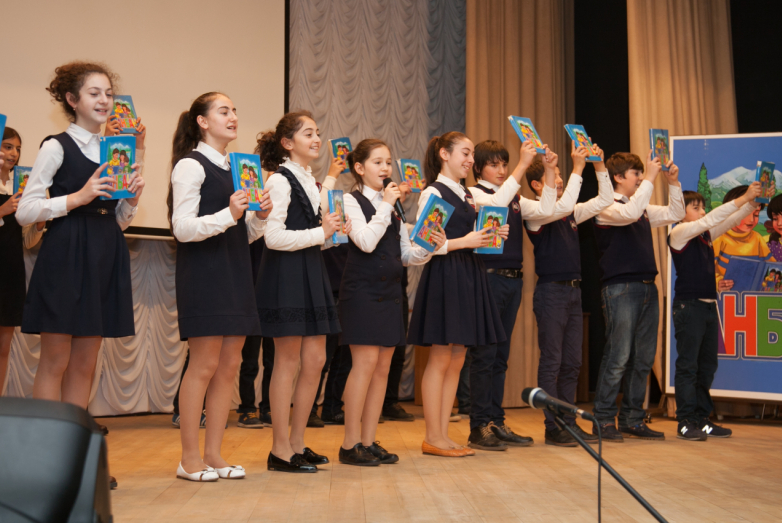
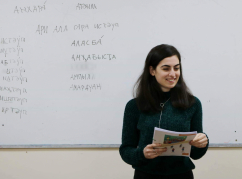
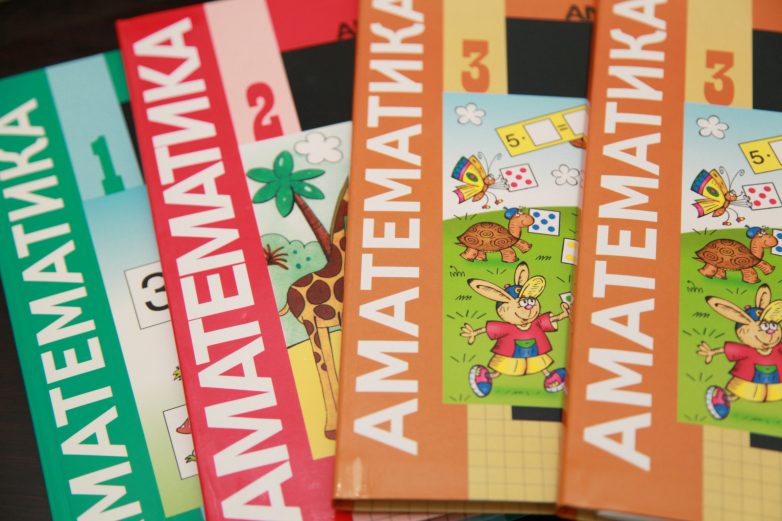
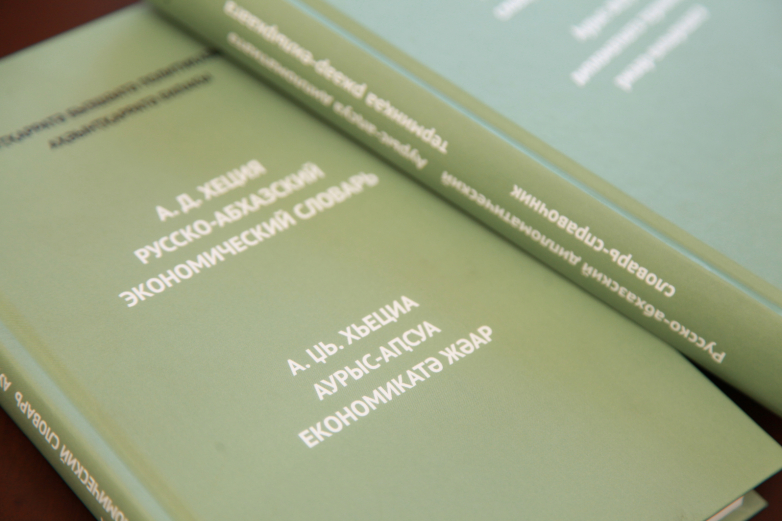
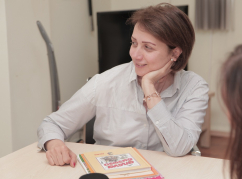
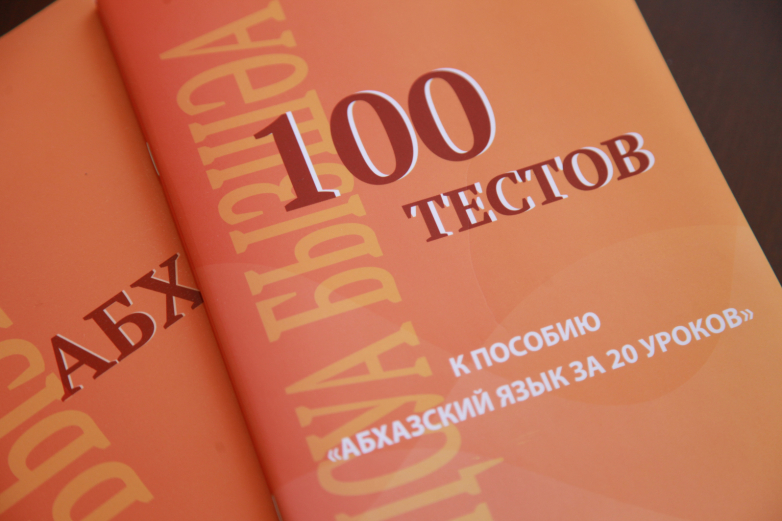
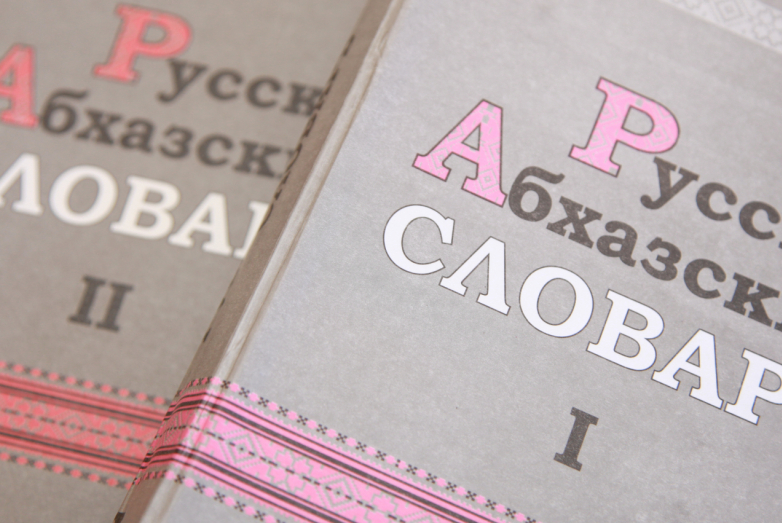
to login or register.